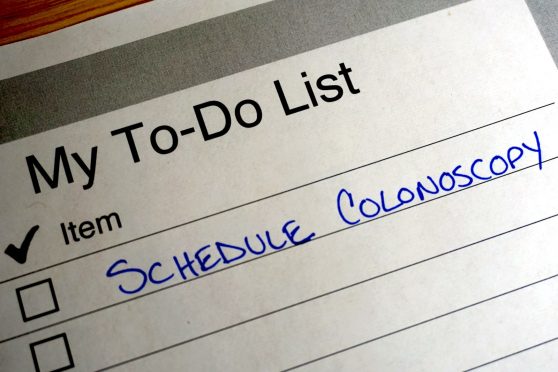A few months before his death on Jan. 4 at age 60 from metastatic colorectal cancer, former Major League Baseball pitcher Jim Corsi gave an interview to a Boston television station.
“I made a mistake when I was younger by not getting a colonoscopy,” said Corsi, whose career included three seasons with the Boston Red Sox. “If you’re out there, don’t wait. Don’t be stupid. Get a colonoscopy. I was a professional athlete and thought I was invincible.”
Dr. Jeffrey Nestler, chief of gastroenterology at Hartford Hospital and director of Hartford HealthCare’s Digestive Health Center, said when he sees a story like Corsi’s, “It’s extremely heartbreaking. It’s frustrating. Because colon cancer really is preventable.”
Colorectal cancer, often referred to as colon cancer, is the third-leading cause of cancer death in this country. Annually, 140,000 people are diagnosed in the United States and 50,000 people die. African Americans are diagnosed more often, at a younger age, and die more often from colon cancer than any other demographic. The actor Chadwick Boseman brought particular focus to the disease and its effects when he died in 2020 at age 43.
Colon cancer arises from a polyp which can be removed at the time of colonoscopy preventing colon cancer completely. If colon cancer is found early and treated, the survival rate is 90 percent. The problem is that most people do not experience symptoms until colon cancer is advanced. At that point, the cancer is harder to treat and requires surgery and chemotherapy.
Colon Cancer Screening Guidelines
New guidelines first made by the American Cancer Society in 2018 and adopted by the U.S. Preventive Services Task Force in 2021 now recommends that a person at average risk of colon cancer get screened beginning at age 45 (it was 50). People at increased risk may benefit from earlier or more frequent testing. “Average risk” is defined as no family history of colon cancer or genetic markers.
Nestler said that colonoscopy is the only screening tool that can prevent cancer because during the procedure precancerous polyps can be removed.
“That’s key,” he said. “Because it’s not just diagnostic. It’s preventive and therapeutic. We can find polyps (pre-cancer) that are as small as 2-3 millimeters and remove them.”
Common reasons people give him for not having one involve the preparation, or the fact that it pretty much takes two days because of the prep and then the procedure. “The prep is much easier and only one day,” he said. “And now there are smaller volume preps, there are tablets available as well. Some people like that better.”
People ask about at-home tests like Cologuard, “which are fine for detecting actual cancer,” he said. “But it doesn’t detect precancerous polyps as well as a colonoscopy does. So it’s better than nothing but it’s not preventive, it is diagnostic and we want to be preventive.”
If you answer yes to any of the following questions, talk with your doctor about getting screened.
- Are you over the age of 45?
- Do you have a family history of colon cancer or polyps?
- Are you of African American or Ashkenazi Jewish descent?
- Do you have Crohn’s disease or ulcerative colitis?
- Do you have a genetic syndrome such as familial adenomatous polyposis (FAP) or hereditary nonpolyposis colorectal cancer (Lynch syndrome)?
If you have these symptoms, talk to your doctor about a colonoscopy:
- A persistent change in your bowel habits, including diarrhea or constipation or a change in the consistency of your stool.
- Rectal bleeding or blood in your stool.
- Persistent abdominal discomfort, such as cramps, gas or pain.
- A feeling that your bowel doesn’t empty completely.
- Unexplained weight loss.
- Anemia.


